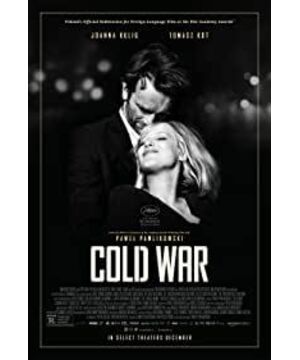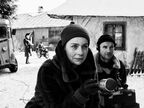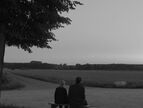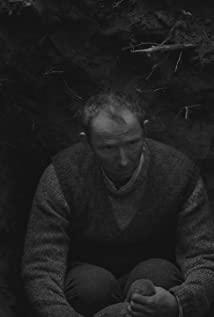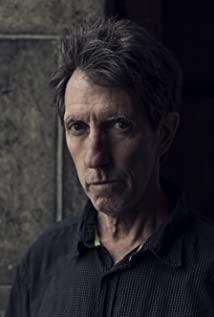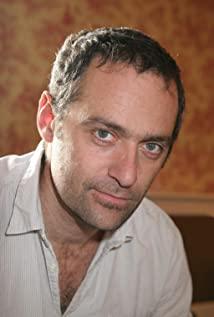When it comes to the current masters in the world of cinema who are good at using black and white images, Polish director Pavel Pavlikowski must be a name that cannot be avoided. Although he has only shot two black-and-white feature films so far, he has captured a large number of fans around the world for his outstanding technical expression and humanistic qualities and enjoys a high reputation. The "Cold War", which was shortlisted for the main competition in Cannes this year, won the Best Director Award, marking another milestone in Pavel's career. From this love letter dedicated to the fathers, we can not only read the continuation of his tone characteristics, but also see the further maturity and finalization of his author's style.
The background of the story is still set in Poland. After the smoke of the Second World War, Wiktor, a piano player, ran across the country to raise funds to form a folk song and dance troupe. He gradually fell in love with Zula, who has a clear singing voice and a mysterious life experience. Fifteen years of love long-distance race. The film uses this as a coordinate to link up the six periods of time and space, allowing the audience to witness how the lovers who lived in the Cold War era, under the iron curtain of lies rampant, while tossing and turning, while carefully maintaining the innocence and vitality of the relationship.
Comparing with the stunning "Sister Ada" in previous years, we can find the smooth relationship between the two narrative time and space. The former focuses on the belief crisis and emotional trauma faced by individuals after the war. The new work brings the perspective back to the middle of the last century, focusing on the process of the gradual fermentation of the Cold War pattern, and exploring the deep connection between the destiny of individuals and the transition of the times. Although emotion is the focus of the whole film, the turbulence revealed in the romantic rhyme repeatedly reminds the audience of the particularity of the historical environment. When politics strictly restricts the freedom of personal action and thought, will love become a victim in the quagmire, or will it regain its vitality in the ashes?
Similar to the previous work, the director did not directly start from the outside when presenting the tide of drastic changes in the times, and directly outlined the conflicts of reality. Instead, he used microscopic little characters as footnotes to provide some kind of roundabout examination and thinking. What closely fits with it is A complete set of classic European academic creation system. Regardless of the precise control of the film length, the retro picture or the sophisticated lighting composition, all are branded with an elegant and unique aesthetic mark.
The first of these is undoubtedly the visual impact released by the black and white lens. The director of photography Lukasz Zal and Pavel collaborated in "Sister Ada" earlier. The cold war landscape in Eastern Europe constructed by the two of them is saturated with minimalist tones to almost overflow. Frames of nostalgic and simple pictures, like Polish folk songs with surging emotions, carry people's long-distance and love for their homeland, and also give the film a sense of loneliness and desolation. It is no wonder that after "Cold War" appeared at the Cannes and Shanghai Film Festivals, it was dubbed "The Most Beautiful PPT Movie of the Year" by many fans and the media .
It is true that if the picture is shackled by a lively ideographic space, it is out of the role of linking reality, and it is not enough to transform it into a high-level movie-watching experience. Corresponding to its plump image texture is the consistent and deep humanistic theme of the work. From the care for existentialism in "Sister Ada" to the multiple barriers in "Cold War" (realistic dimensions: national boundaries, class mobility; abstract dimensions: ideology, life philosophy, creation concept) , rootlessness and flow are two Common features in time and space. The sprout of love injects meaning into the journey of nothingness. It makes the film's unique black and white scenes look decadent and solemn, with a little more agile tenderness. This makes people think of "The Artist" and other films. When life is trapped in a labyrinth of frustration, love is often the dark light of salvation.
Compared with the oil painting-like photography and religious composition in "Sister Ada", "Cold War" has a richer mirror image, which undoubtedly reflects the complexity of the era. At the beginning of the film, the scene of the male lead Wiktor and another female musician Irena going to the countryside to collect the scenery is presented as natural and vivid as a documentary. We may be able to correspond this to the director’s childhood when he moved abroad with his parents, and the haziness of the Polish countryside. Deep memory. This kind of regional/national consciousness rooted in the creator’s past experience is internalized as a source of inspiration for writing the scenery of his homeland, and flows out through the purely poetic content of the folk song lyrics.
After this kind of emotion filled with the feelings of a child, the film quickly jumped out of personal vision and turned to the projection of the outside world, so it overflowed with a strong metaphorical color. Especially in the portrayal of the song and dance troupe's tour, the lens scheduling is often fixed, which coincides with the depressed and confused and orderly social environment in Poland after the war.
In contrast, moving long shots in Paris, Yugoslavia and other places accurately captured the state of displacement of artists and lovers in Europe and their pursuit of free will. Two sets of freely switching shooting systems correspond to their locked political climate and community cultural atmosphere. It can be said that it is these proficient techniques ambushing the power of form rendering that while bringing people the ultimate sensory enjoyment, they also make the power of the film's narrative more impactful and embed multiple interpretation spaces for it.
As a particularly eye-catching movie depicting song and dance troupes, music is naturally also the highlight of the film. Unlike another black-and-white film "Midsummer", which focuses on rock music, the original soundtrack is more like a background melody that echoes the political arena in addition to emphasizing emotion in the film. The birth and touring of the song and dance troupe, and the forcible elimination of the rustic and natural attributes of folk creations, are an excellent projection of this kind of propaganda path. Just like the huge portrait of Stalin on the stage, it can be seamlessly connected to the depiction of the cultural troupe scene in "Fang Hua", and "Cold War" has also been aptly described as "the Polish version of "Fang Hua" by many domestic media. The use of similar symbols not only fully restores the turmoil of that era, but also makes the tedious political discourse concise and clear through artistic expression, which can be received and perceived by people.
If, in terms of the balance between personal complex and collective memories, "Fang Hua" inevitably has the suspicion of avoiding the most important things and beautifying the trauma of history, then "Cold War" has handled it more intricately. In the film, there is a plot where Zula informs the government of Wiktor's whereabouts. The squeeze of intimacy caused by the strict rule is self-evident at this moment, and the air is filled with an unusually solemn sense of crisis.
But when the former broke the concealment and caused the lover to leave in anger, the following scene melted the decisiveness of reason in an unexpected, extremely beautiful and dreamy interpretation, and reinjected temperature into the cold image. Obviously the director has no intention to avoid the conflict between romance and reality, so that the beautiful halo is stretched and enlarged under the lens, but the emotions of the two are hidden everywhere in the picture, leaving it like a green vine crawling out of the bricks. Grow up and down. It can be seen that Pavel's free control of the atmosphere is indeed a master level.
When the film premiered in Cannes, many media speculated on the origin of the protagonist in the film. It wasn't until the end that we typed a line "For My Parents" that we were able to understand the opportunity of the director's creation. In fact, it is through the private and lyrical way of "paying homage to the fathers" that the medium of looking back at history can operate, inviting viewers to enter the period of totalitarian manipulation of the fragmented sensibility, and witnessing how individual emotions are born and tested in the cold zone, and move towards Unforeseen future.
This leads to another somewhat curious proposition: Is it only in a severe and high-pressure environment that emotions can inspire vigorous vitality? Even if we have no way of inferring the gap between the story and the prototype, we can still foresee the volatile and volatile situation of this love stumbling forward in the mist. As for the two poignant and moving endings, you might as well make this assumption: If history is fast-forwarding decades, with the Polish Revolution, the Berlin Wall falls, and all visible isolation, barriers, and noise disappear, can they choose to be brave?
The creator has no intention to explore too much about this level of suspicion that extends from the surface of the play. He allows the pair of miserable mandarin ducks to make instinctive choices along with the evolution of time and space under the catalysis of a series of accidental and inevitable entanglement. In Paris, the conflicting passages between the two due to differences in lifestyles and social concepts are quite interesting. At this time, the "Cold War" has penetrated from reality into the emotional interior, indicating a more crushing burden than political discipline. Under the vast and faint sea level, all firm oaths have become weak bubbles.
Since Wiktor was arrested across the border in order to return to China to find his lover, the film has fallen back to the original stable track, bringing the audience a dream-like sentimental and glorious ending. Pavel gave up on dealing with more emotionally detailed and deep frictions, but allowed it to stay parallel to the indifferent and distant world. For example, the poland ballad which was adapted into a jazz version of Nagata, paused in the chanting and passionate thoughts of classical romance. .
This may be the reason why "Cold War" is not perfect. It is exquisite, restrained, but slightly flat, and cannot withstand excessive scrutiny. Contacting Pavel's speech at the press conference, we can speculate that it was the great energy devoted to the production of pictures and sound effects that, in order to blend all the elements into one, it made the text that should have been equally mellow "thin". The love epic that makes the two protagonists ups and downs, finally connected into a condensed popular drama through a few scenes, but the inner connection between emotion and the characteristics of the times is superficial. The placement of an individual's fate seems to be traceable, but in fact it lacks deeper retrospection and inquiries. Even if the last mirror is so shocking and infectious, it can't fill the delicate vacuum on the edge of this storm.
How to reconcile artistry and ideology in proportion must be a lifelong test that all directors must face. Not only Pavel, Bi Gan, Refn, and countless industry wizards who strive for aesthetic breakthroughs, or disappear from time to time in Fengwo's visual information, but they never stop exploring light and shadow experiments. For modern audiences with diverse aesthetics, the judgment criteria are not all the same.
At least, for movie fans who are obsessed with black and white movies, "Cold War" is destined to be a feast worthy of heart and soul. Even if the integration of image saturation and narrative needs to be perfected, we can still capture countless fascinating scenery from it, just like all the slices finally merged into a small screen, reflecting the golden afterglow of the field, and the hero and heroine support each other and jump into it. Realistic cold river.
At that moment, you understood that all the enthusiasm and emotions, after all, have existed for real, and they are definitely not rumbling hallucinations.
View more about Cold War reviews


